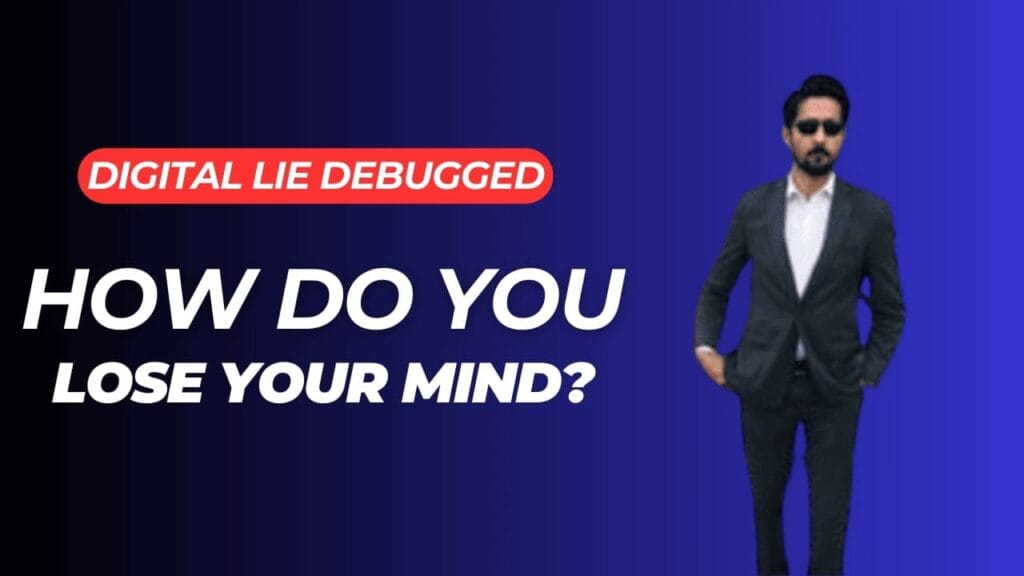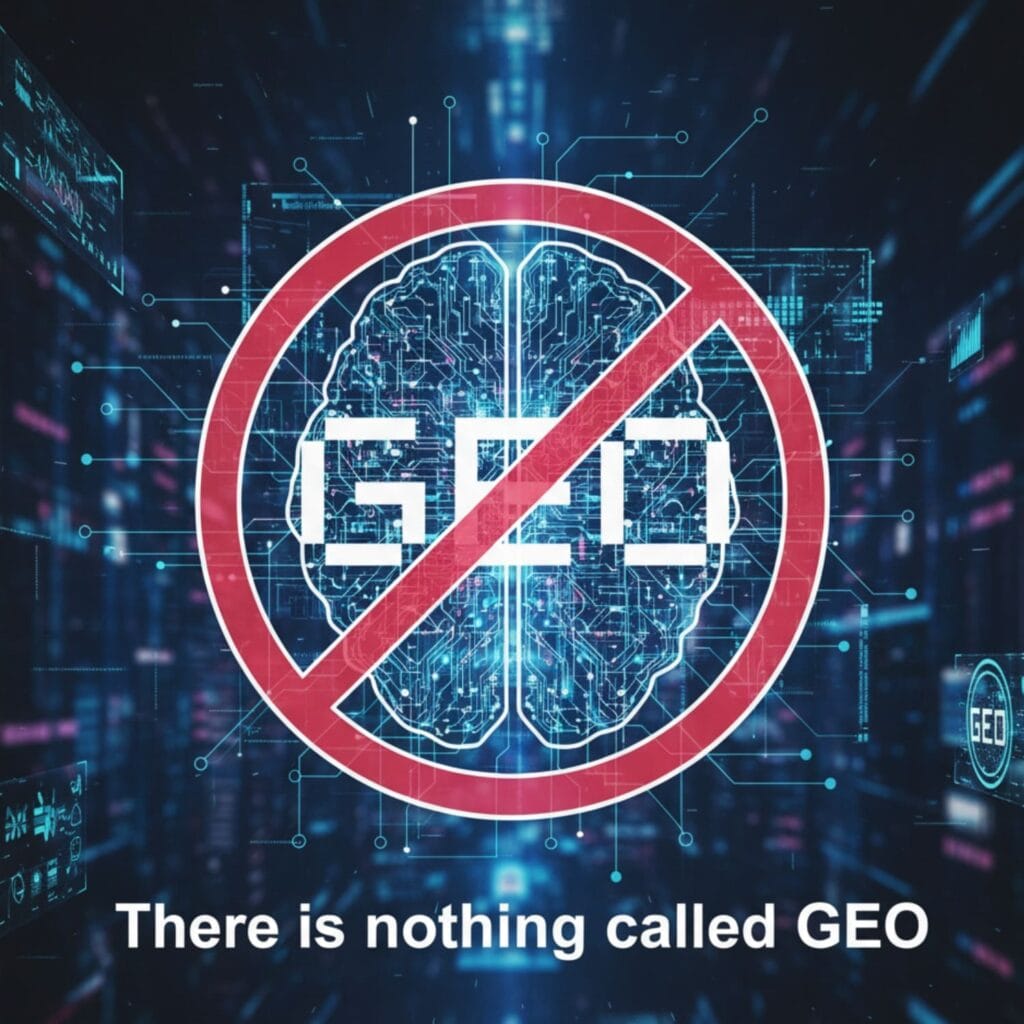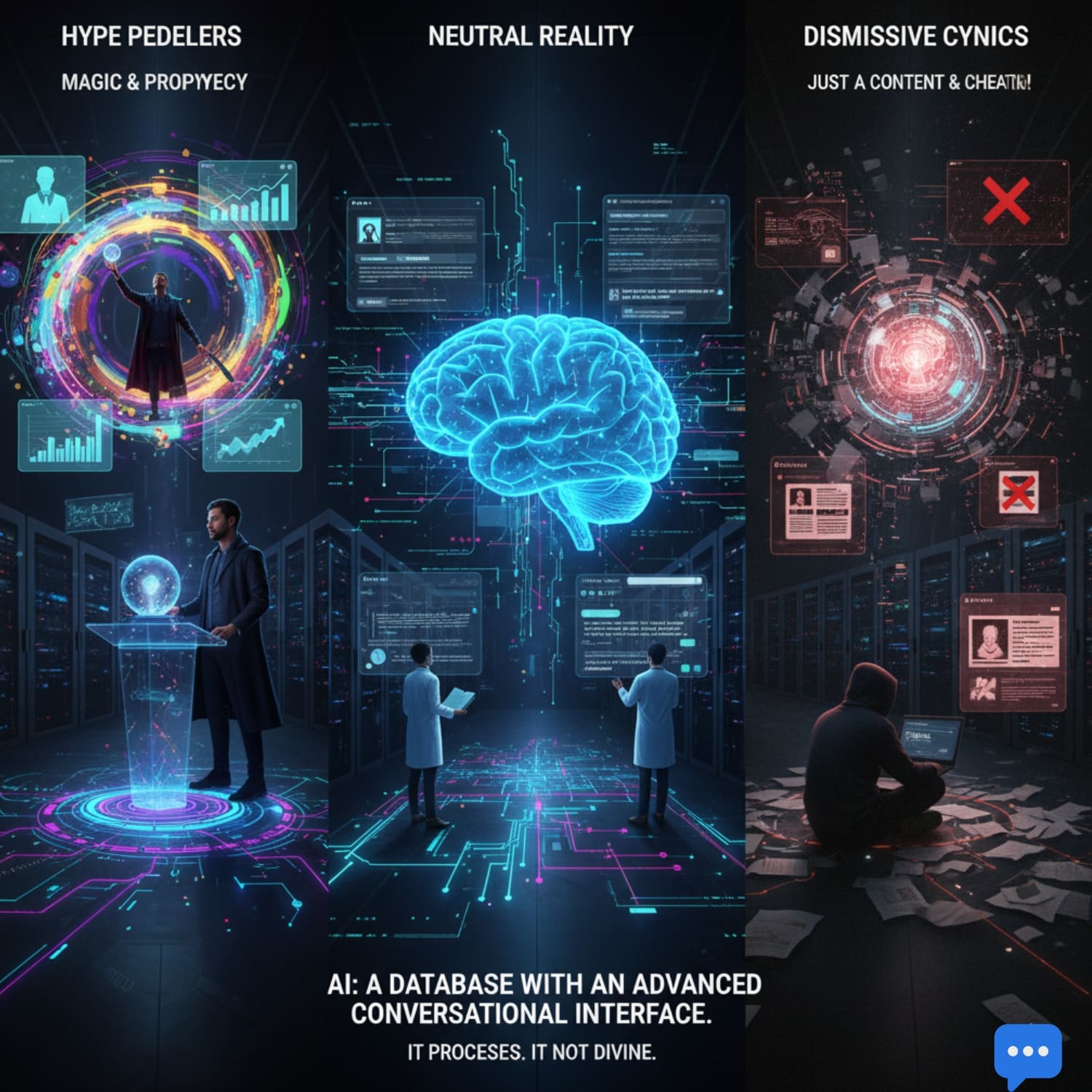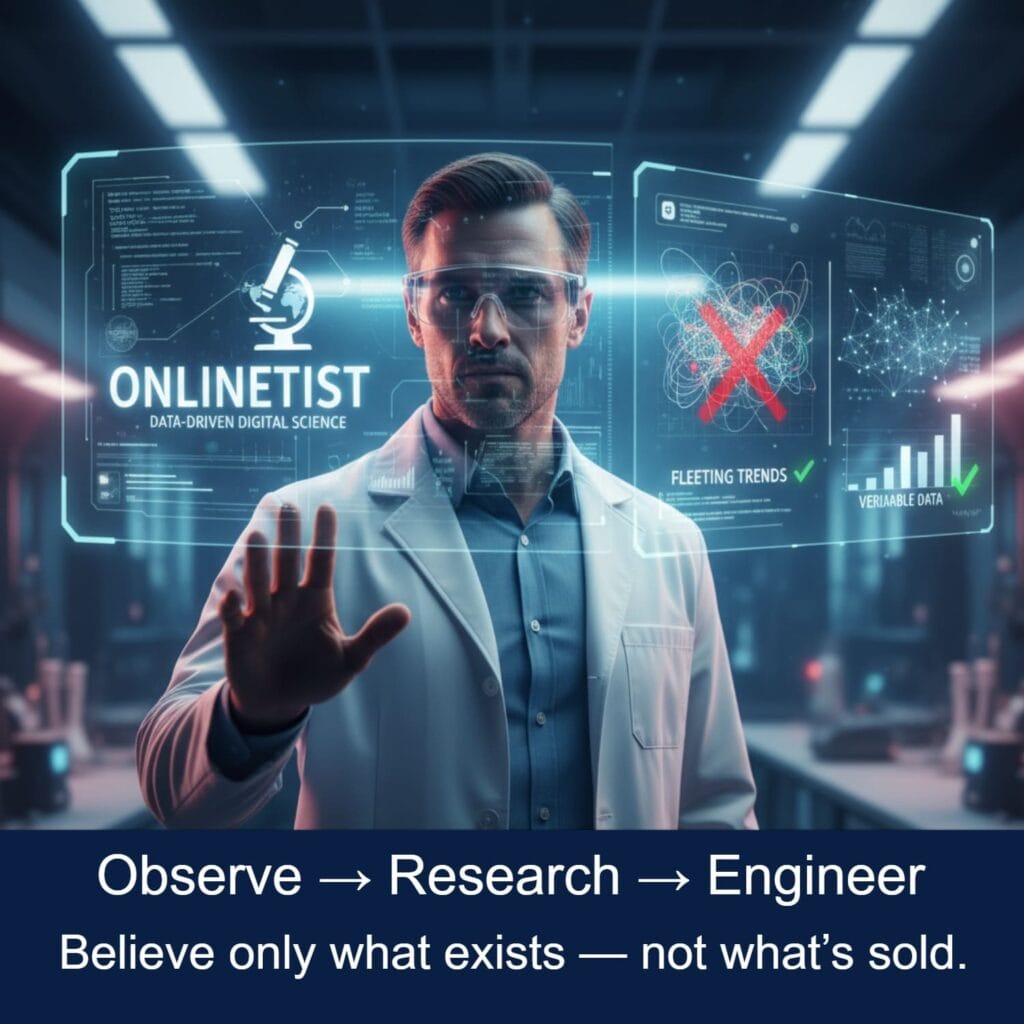SEO vs GEO The Digital Lie How You’re Sold Success and Shortcuts That Never Work — or Don’t Even Exist
This article is a wake-up call. For too long, the digital world has operated under a cloud of confusion, filled...
This article is a wake-up call. For too long, the digital world has operated under a cloud of confusion, filled...


This article is a wake-up call. For too long, the digital world has operated under a cloud of confusion, filled with myths, fake metrics, and solutions that don’t solve anything. It’s a system that benefits the seller, not the buyer, leaving business owners chasing shadows while their real problems go unsolved.
This isn’t another list of marketing tips. This is a correction. It’s a deep dive into the fundamental flaws of the digital industry, guided by the research and philosophy ofKaleemullah Naik as onlinetist

The first myth is that having a website is the end goal. Most businesses are sold a “new website design” that is, in reality, just a pre-built template with their logo and colors applied. This isn’t a problem solving web development; it’s template configuration. It’s like being sold a custom-tailored suit that is actually an off-the-rack jacket with the sleeves shortened.
The problem runs deeper than aesthetics. These websites are built without a strategic blueprint. They are digital brochures, not working assets. No optimization is done to ensure the structure guides users, the speed is instant, or the backend is integrated to solve business problems. This is why so many beautiful websites fail to generate a single lead. They were never engineered to do a job in the first place and a business did not know what a true website can do for them.
“We will do your SEO” has become one of the most hollow promises in business. The strategy often boils down to one tactic: acquiring backlinks through guest posts and other paid means.
This leads to a dangerous misconception that SEO is about who has the biggest wallet. Let’s apply some simple logic: if SEO were just about buying backlinks, a wealthy businessman could purchase 100,000 links and rank a brand-new website in a week.
We know this is impossible. Why? Because Google’s algorithm is designed to measure genuine trust and authority, which cannot be bought. A website with thousands of paid links will never outrank a competitor that provides a superior user experience. Real SEO is the result of a fast, well-structured, and genuinely valuable website—it’s not a trick you apply afterward.

This myth has given rise to new fake products, like “GEO” (Generative Engine Optimization), a term created by course-sellers to profit from the AI hype. It has no technical basis. True authority is earned, not bought, a principle detailed in Google’s own guide for beginners.
That’s why claims like “SEO is dead” or “AI will replace Google” miss the mark. In reality, AI depends entirely on the web — and by extension, on search engines like Google
So logically a BIG NO. The idea comes from a misunderstanding of what each one does.
Think of it like this: Google is the world’s largest library. An AI like ChatGPT is the world’s most brilliant research assistant that you send into that library.
The research assistant is incredibly fast and smart, but it’s useless without the library. It can only read the books that are already there, and it relies on the library’s catalog (Google’s index) to find them. AI synthesizes information from the web; it doesn’t create it from thin air.
But still if an AI were to replace Google, it would have to be Google’s own AI, which they are already integrating directly into their search engine. The “library” is just getting its own, upgraded research assistant Gemini is one of the powerful tools more flexible and user friendly than many AI tools out there.
Digital marketing is plagued by two flawed ideas. The first is the “Boost Post” button on social media. This tool is a brilliant revenue generator for platforms like Facebook, but it’s a terrible strategic tool for businesses. It encourages spending without the necessary targeting, testing, and analysis that a real ad campaign requires.

The second, more dangerous idea is treating digital marketing like a direct salesperson. Business owners become frustrated when an ad campaign doesn’t immediately generate a flood of sales, viewing it as a failed expense. This is a fundamental misunderstanding of marketing’s role.
Marketing’s primary job is to build Brand-Based Equity (BBE)—the trust, recognition, and positive image that a brand holds in the consumer’s mind. It creates future customers. Expecting every ad to result in an immediate sale is like a farmer planting a seed and demanding to harvest the fruit the next day. It’s a process that requires patience and consistency, a cornerstone of any Effective long-term lead generation strategy.
No topic is more misunderstood than Artificial Intelligence. The public discourse is dominated by two extreme, and equally wrong, viewpoints.

On one side, you have the hype peddlers. These are the influencers who share sensationalist videos claiming that AI will soon predict your future health problems. They sell a fantasy of an all-knowing, psychic technology. On the other side, you have the dismissive cynics, who believe AI is nothing more than a tool for faking content and cheating.
Think of AI like a supercharged calculator. Just because it can solve complex equations instantly doesn’t mean it understands math like a human — it just processes what it’s been taught, faster. The same goes for generating text or speech. AI isn’t faking knowledge or replacing people; it’s working with the data we’ve given it to help us work smarter, not disappear. It’s a tool — not a takeover.
“for more comprehension an AI can name a medicine used for diabetic but cannot tell you what is the level of glucose in your blood.”
Crucially, AI is entirely dependent on the existing internet. When you ask an AI for a recommendation, it searches the web and synthesizes the information it finds on well-ranked websites. It cannot suggest something that is not already visible on search engines. This is why the idea of AI replacing Google is flawed; AI, in its current form, needs Google to function. The true value of this technology lies in practical application, such as Building an AI receptionist to automate bookings, not in chasing magic.
He is a developer in Dubai with extensive, hands-on experience exploring the digital world for over a decade. His journey wasn’t about challenging the system from the start, but about years spent learning, building, and observing from within it.
It was this deep, practical experience that ultimately led him to challenge the industry’s flawed norms and hyped-up products. He now actively speaks out on social media, where he has taken on the mission to “debug the digital lie” for his followers.
It isn’t a company or an agency; it is the professional title Kaleemullah chose as his online identity. The name is a word he coined by combining two concepts: Online and Scientist.
The “Online” part represents the digital world he operates in. The “Scientist” part signifies the research-driven, evidence-based philosophy he developed. This philosophy is his tool for correcting the industry’s biggest flaws, whether it’s the lack of quality in web development, the fundamental misconceptions of SEO, the damaging shortcuts in digital marketing, or the dangerous over-hype of AI.”
Onlinetist means someone with a deep understanding of the online world, grounded in research and supported by strong, evidence-based insights.
It’s not just a philosophy — it’s a disciplined, scientific approach to digital challenges. An Onlinetist observes, forms hypotheses, and engineers solutions based on logic and verifiable data — not fleeting trends.
This method offers a clear, objective lens through which to expose and correct the industry’s most persistent myths and misconceptions.

The purpose of this article was not to sell you a solution, but to give you a framework for understanding. The digital world is simpler than you’ve been led to believe. It operates on the timeless business principles of creating real value, earning trust, and solving problems.
By understanding the difference between template configuration and true web architecture, between buying links and earning authority, and between short-term boosts and long-term brand equity, you are already ahead of the curve. The goal of the Onlinetist philosophy is to empower you with this clarity, so you can stop buying into myths and start making intelligent, strategic decisions for your business, by observing, research an then engineer, “Believe on what exists and make sense not told or sold by people”
1. What is the single biggest misconception about SEO?
That it’s a “service” you can buy. Real SEO is the outcome of having a technically excellent website with valuable content. It’s something you achieve through quality, not something you purchase in a package.
2. Why isn’t a beautiful website enough to get clients?
Because a website’s primary job is function, not fashion. If it’s not fast, easy to navigate, and strategically designed to guide a user to a specific action, its beauty is irrelevant. It’s a tool that needs to be engineered for a purpose.
3. Is AI just a trend or is it essential for business?
It’s an essential tool, but not in the way most people think. It’s not about generating flashy content. It’s about practical automation—using AI to handle repetitive tasks like scheduling, lead qualification, and customer support, which frees up human time for more valuable work.
Is AI going to replace Google?”
Logically, no. The idea comes from a misunderstanding of what each one does.
Think of it like this: Google is the world’s largest library. An AI like ChatGPT is the world’s most brilliant research assistant that you send into that library.
The research assistant is incredibly fast and smart, but it’s useless without the library. It can only read the books that are already there, and it relies on the library’s catalog (Google’s index) to find them. AI synthesizes information from the web; it doesn’t create it from thin air.
So, if an AI were to replace Google, it would have to be Google’s own AI, which they are already integrating directly into their search engine. The “library” is just getting its own, upgraded research assistant. So relax, things are under control.